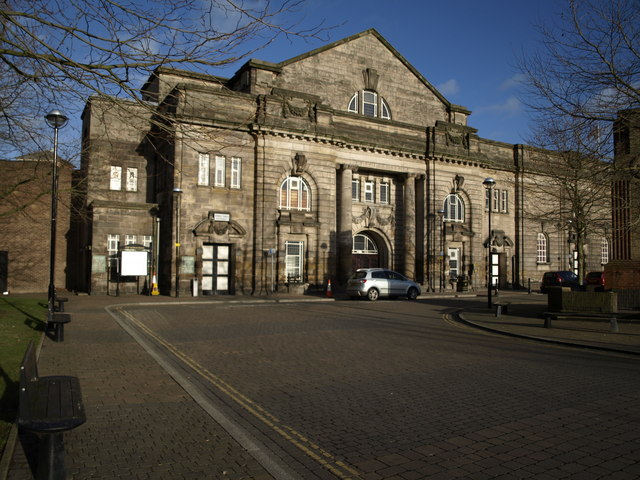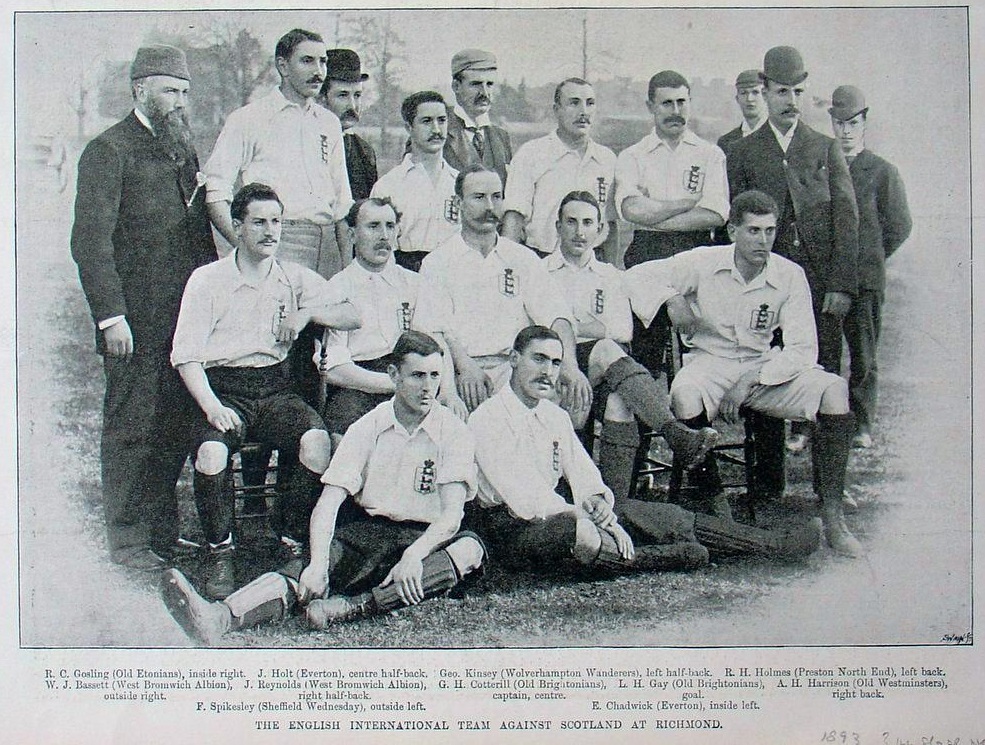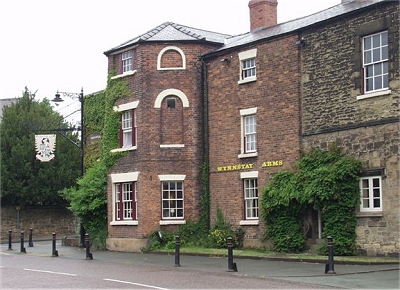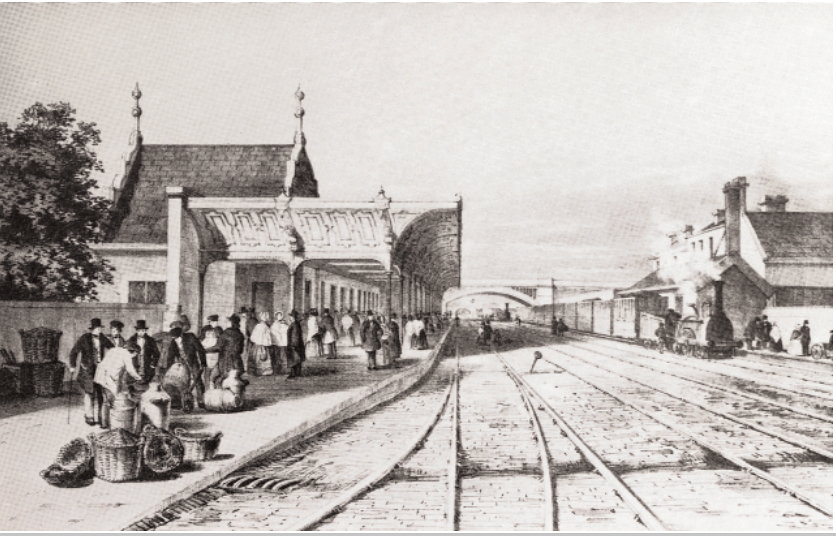|
Robert Roberts (footballer, Born 1865)
Robert Roberts (1865 – 1 October 1945) was a Welsh footballer who played at outside-left for several clubs, spending most of his career with Crewe Alexandra in the English Football League. He made two appearances for Wales. Football career Roberts was born in Rhosllannerchrugog near Wrexham and was a member of the village football team by the time he was thirteen, going on to captain the side for four seasons. Once he had completed his schooling, he became a teacher in Anglesey before moving to take up a post with Timberlane National School in Northwich, where he played for Witton Britannia, helping them reach the final of the Cheshire Junior Cup, where they lost to Crewe Hornets. He returned to " Rhos" in the late 1880s and made his first appearance for Wales when he replaced Jack Bowdler against Ireland on 7 February 1891. The Welsh team were comprehensively defeated by a score of 7–2. Shortly after his international debut, Roberts was persuaded by Seth Powell to ... [...More Info...] [...Related Items...] OR: [Wikipedia] [Google] [Baidu] |
Rhosllannerchrugog
RhosllanerchrugogDavies, Jenkins and Baines (eds) ''The Welsh Academy Encyclopedia of Wales'', 2008, p.752 (also spelled Rhosllannerchrugog, or simply Rhos) is a village and community in Wrexham County Borough, Wales. It lies within the historic county of Denbighshire. The entire built-up area including Penycae, Ruabon and Cefn Mawr had a population of 25,362. Etymology The name of the village is derived from that of the old Llanerchrugog estate, once one of the landholdings of Cynwrig ap Rhiwallon, Lord of Maelor Gymraeg.''Archaeologia Cambrensis: The Journal of the Cambrian Archaeological Association'', 1895, p.225-6 The name ''Llanerchrugog'' is usually stated to be based on Welsh llannerch, "''clearing''" or "''glade''"; and (with soft mutation), "''heathery''", although an etymology based on crugog, "hilly", "rough", has also been suggested.Morgan, ''A handbook of the origin of place-names in Wales and Monmouthshire'', 1887, p.50 The name of the mining village which l ... [...More Info...] [...Related Items...] OR: [Wikipedia] [Google] [Baidu] |
Seth Powell
Seth Powell (1862 – 3 February 1945) was a Welsh footballer who played at full-back for West Bromwich Albion in the English Football League. He made seven appearances for Wales in the 1880s and 1890s. Football career Powell was born in Cerney, near Wrexham, and played his early football in the nearby village of Summerhill. In 1883, he moved just over the border into England to become assistant schoolmaster at the Oswestry Board School. He played for two Oswestry based football clubs; firstly with Oswestry White Stars with whom he won the Welsh Cup in 1884 and reached the final the following year. He then joined Oswestry Town where he remained until 1890. His first international cap came on 23 March 1885 at the Racecourse Ground in Wrexham when the Welsh suffered an 8–1 defeat at the hands of Scotland, with Joseph Lindsay scoring a hat-trick. He was recalled to the side the following year for matches against Ireland and England. Towards the end of the 1889–90 season, ... [...More Info...] [...Related Items...] OR: [Wikipedia] [Google] [Baidu] |
Public House
A pub (short for public house) is a kind of drinking establishment which is licensed to serve alcoholic drinks for consumption on the premises. The term ''public house'' first appeared in the United Kingdom in late 17th century, and was used to differentiate private houses from those which were, quite literally, open to the public as "alehouses", " taverns" and " inns". By Georgian times, the term had become common parlance, although taverns, as a distinct establishment, had largely ceased to exist by the beginning of the 19th century. Today, there is no strict definition, but CAMRA states a pub has four characteristics:GLA Economics, Closing time: London's public houses, 2017 # is open to the public without membership or residency # serves draught beer or cider without requiring food be consumed # has at least one indoor area not laid out for meals # allows drinks to be bought at a bar (i.e., not only table service) The history of pubs can be traced to Roman taverns ... [...More Info...] [...Related Items...] OR: [Wikipedia] [Google] [Baidu] |
Welsh Cup
The FAW Welsh Cup ( cy, Cwpan Cymdeithas Pêl-droed Cymru), currently known as the JD Welsh Cup for sponsorship reasons, is a knock-out football competition contested annually by teams in the Welsh football league system. It is considered the most prestigious of the cup competitions in domestic Welsh association football. The Football Association of Wales (FAW) is the organising body of this competition, which has been run (except during the two World Wars and the COVID-19 pandemic) every year since its inception in 1877–78. In the early years of organised football in Wales, football was very much the sport of north Wales rather than the rugby union playing south – the FAW was founded in Wrexham in 1876, and Wrexham remained the site of the FAW's head office until 1986; it was not until 1912 that a southern team, Cardiff City, won the Welsh Cup for the first time. The winning team qualifies to play in the following season's UEFA Europa Conference League (previously teams ... [...More Info...] [...Related Items...] OR: [Wikipedia] [Google] [Baidu] |
Referee (association Football)
In association football, the referee is the person responsible for interpreting and enforcing the Laws of the Game during a match. The referee is the final decision-making authority on all facts connected with play, and is the match official with the authority to start and stop play and impose disciplinary action against players and coaches during a match. At most levels of play the referee is assisted by two assistant referees (formerly known as linesmen), who advise the referee on whether the ball leaves the playing area and any infringements of the Laws of the Game occurring outside of the view of the referee. The final decision on any decision of fact rests with the referee who has authority to overrule an assistant referee. At higher levels of play the referee may also be assisted by a fourth official who supervises the teams' technical areas and assists the referee with administrative tasks, and, at the very highest levels, additional assistant referees and/or vide ... [...More Info...] [...Related Items...] OR: [Wikipedia] [Google] [Baidu] |
Lancashire League (football)
The Lancashire League has been the name of two separate football competitions for clubs based in northern England. Lancashire League (1889 to 1903) The original Lancashire League was formed in 1889, and was established because of the success of the Football League, which had been established just one year earlier. Prime movers in the formation of the league were the officials of Bury Football Club, who had ambitions to set up a regional competition which would be a stepping stone for them and other clubs to gain a place in the Football League. Although the majority of the clubs were based in the county of Lancashire, the league did eventually accept several clubs from neighbouring Cheshire. Additionally from further afield, Workington, from Cumberland, were members for two seasons, while Doncaster Rovers, from Yorkshire, were also to make an application to join. The league survived for fourteen seasons until 1903, and in 1903–04 it became the Second Division of the Lancash ... [...More Info...] [...Related Items...] OR: [Wikipedia] [Google] [Baidu] |
Assistant Referee (association Football)
In association football, an assistant referee (previously known as a linesman or lineswoman) is an official empowered with assisting the referee in enforcing the Laws of the Game during a match. Although assistants are not required under the Laws, at most organised levels of football the match officiating crew consists of the referee and at least two assistant referees. The responsibilities of the various assistant referees are listed in Law 6, "The Other Match Officials". In the current Laws the term "assistant referee" technically refers only to the two officials who generally patrol the touchlines, with the wider range of assistants to the referee given other titles. The assistant referees' duties generally consist of judging when the ball has left the field of play – including which team is entitled to return the ball to play, judging when an offside offence has occurred, and advising the referee when an infringement of the Laws has occurred out of his or her view. These ... [...More Info...] [...Related Items...] OR: [Wikipedia] [Google] [Baidu] |
Football League Second Division
The Football League Second Division was the second level division in the English football league system between 1892 and 1992. Following the foundation of the FA Premier League, the Football League divisions were renumbered and the third tier became known as the Football League Second Division. After the rebranding of the Football League in 2003–04, it became known as Football League One. Early history In 1888, Scotsman William McGregor a director of Aston Villa, was the main force between meetings held in London and Manchester involving 12 football clubs, with an eye to a league competition. These 12 clubs would later become the Football League's 12 founder members. The meetings were held in London on 22 March 1888. The main concern was that an early exit in the knockout format of the FA Cup could leave clubs with no matches for almost a year; not only could they suffer heavy financial losses, but fans did not wait long without a game, when other teams were playing ... [...More Info...] [...Related Items...] OR: [Wikipedia] [Google] [Baidu] |
Stoke-upon-Trent
Stoke-upon-Trent, commonly called Stoke is one of the six towns that along with Hanley, Burslem, Fenton, Longton and Tunstall form the city of Stoke-on-Trent, in Staffordshire, England. The town was incorporated as a municipal borough in 1874. In 1910 it became one of the six towns that federated to become the County Borough of Stoke-on-Trent and later the City of Stoke-on-Trent. Since federation in 1910 it has the seat of the city's council, though Stoke-on-Trent's city centre is usually regarded as being the nearby town of Hanley which, since federation, has been the most commercially important of the six towns. Name On 1 April 1910, the town was federated into the county borough of Stoke-on-Trent. By 1925 the area was granted city status. Confusion can arise over the similarity of this town's name to that of the larger city. If the new borough had to be named after one of the original towns, the main reason for using "Stoke" is that this was where the new town's admi ... [...More Info...] [...Related Items...] OR: [Wikipedia] [Google] [Baidu] |
England National Football Team
The England national football team has represented England in international football since the first international match in 1872. It is controlled by The Football Association (FA), the governing body for football in England, which is affiliated with UEFA and comes under the global jurisdiction of world football's governing body FIFA. England competes in the three major international tournaments contested by European nations: the FIFA World Cup, the UEFA European Championship, and the UEFA Nations League. England is the joint oldest national team in football having played in the world's first international football match in 1872, against Scotland. England's home ground is Wembley Stadium, London, and its training headquarters is St George's Park, Burton upon Trent. The team's manager is Gareth Southgate. England won the 1966 World Cup Final (a tournament it also hosted), making it one of eight nations to have won the World Cup. They have qualified for the World Cup 16 times, ... [...More Info...] [...Related Items...] OR: [Wikipedia] [Google] [Baidu] |
Football Association Of Wales
The Football Association of Wales (FAW; cy, Cymdeithas Bêl-droed Cymru) is the governing body of association football and futsal in Wales, and controls the Welsh national football team, its corresponding women's team, as well as the Welsh national futsal team. It is a member of FIFA, UEFA and the IFAB. Established in 1876, it is the third-oldest national association in the world, and one of the four associations, along with the English Football Association, Scottish Football Association, Irish Football Association and FIFA, that make up the International Football Association Board, responsible for the Laws of the Game. History The FAW was founded at a meeting held on 2 February 1876 at the Wynnstay Arms Hotel in Wrexham, initially to formalise the arrangements for the forthcoming match against Scotland. In May 1876, a further meeting was called, this time in the ballroom of the Wynnstay Arms Hotel in Ruabon where the name "Football Association of Wales" was agr ... [...More Info...] [...Related Items...] OR: [Wikipedia] [Google] [Baidu] |
Crewe Railway Station
Crewe railway station is a railway station in Crewe, Cheshire, England. It opened in 1837 and is one of the most historically significant railway stations in the world.Guardian newspaper article, ''The beauty of Crewe'' (6 December 2005). Retrieval Date: 10 August 2007. Crewe station is a major junction on the and serves as a rail gateway for . It is 158 miles north of [...More Info...] [...Related Items...] OR: [Wikipedia] [Google] [Baidu] |


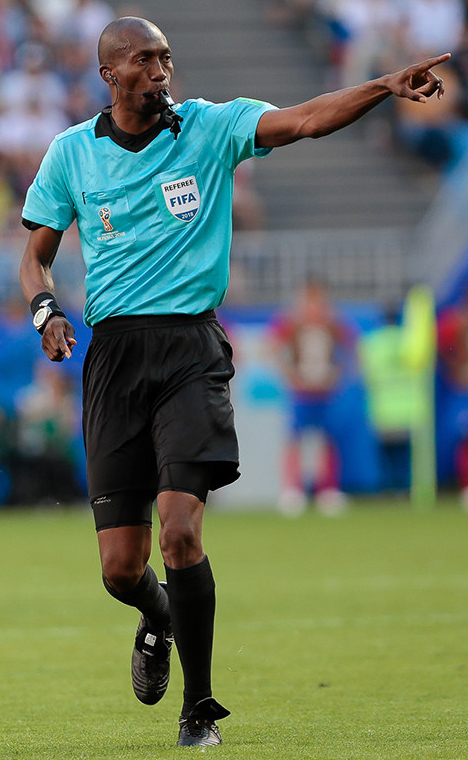
.jpg)
